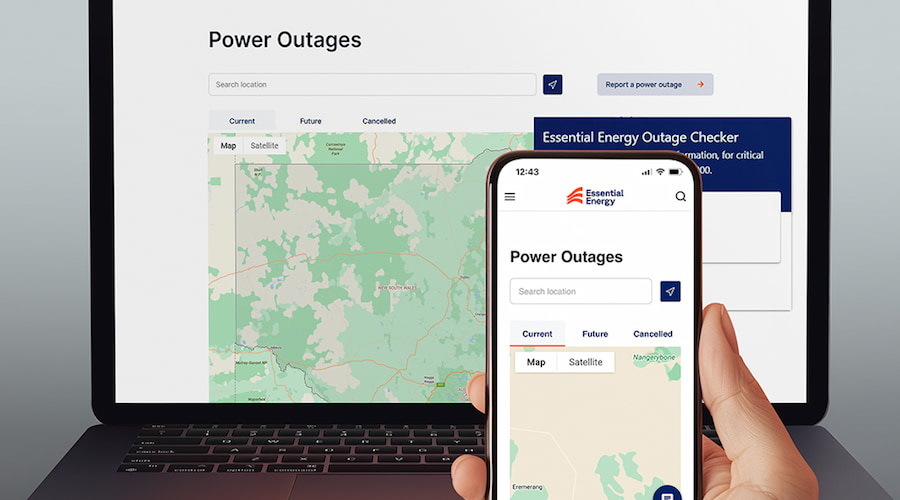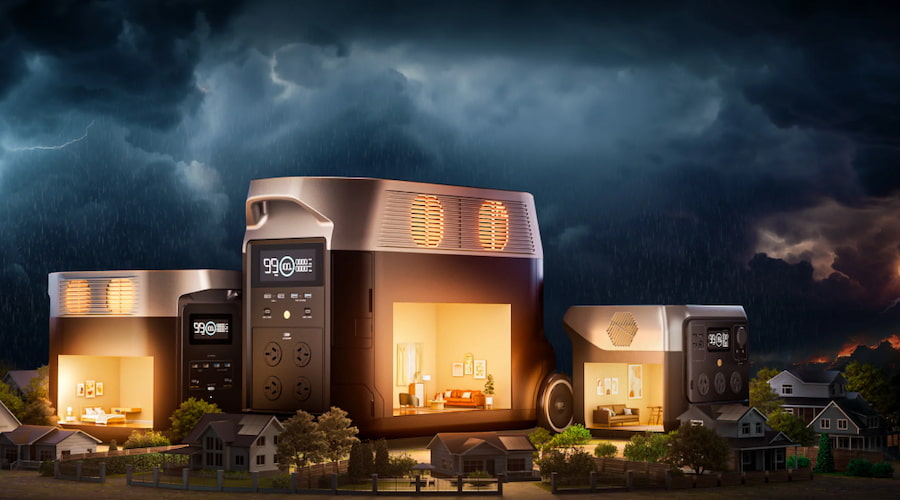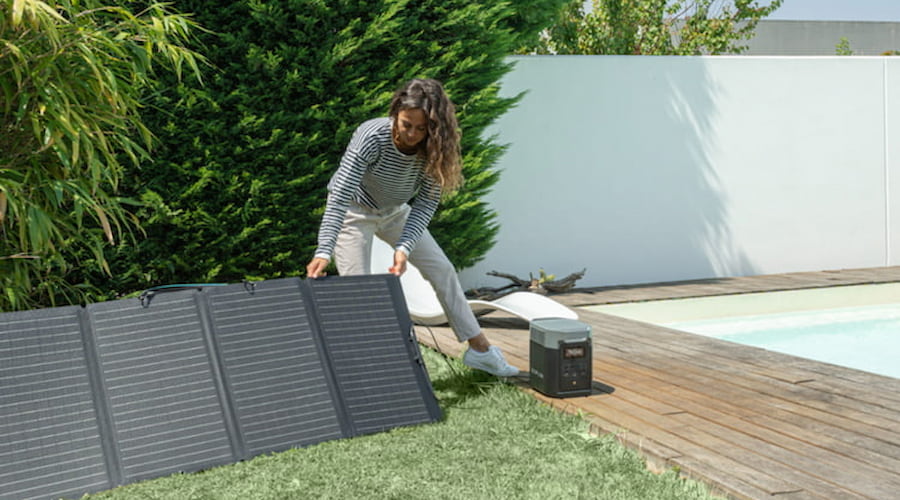How to Handle Essential Energy Outages: Check, Report & Prepare
If you’ve recently experienced power outages due to Ex-Tropical Cyclone Alfred, you’re not alone. In March 2025, this severe weather event left over 300,000 homes and businesses across Queensland and northern NSW without electricity, marking one of the largest outages in recent history.
Whether it’s due to storms, maintenance, or unforeseen issues, dealing with Essential Energy outages can be challenging. This guide is here to help you navigate these situations with confidence. We’ll walk you through how to check for current or planned outages, report issues, make a compensation claim, and most importantly, stay safe and ready for future disruptions.
How to Check for Current and Future Essential Energy Outages?
When the lights go out, the first thing you probably want to know is: Is it just me, or is it the whole street? Thankfully, Essential Energy makes it pretty easy for you to check on current and planned outages in your area. Here’s how:
1. Use Essential Energy Power Outage Map
Essential Energy offers a handy interactive outage map that shows real-time updates on both planned and unplanned outages. Just head to the Outage Map, type in your address or use your location, and you’ll see if your area’s affected.
Pro tip: save the page as a bookmark so you can check it quickly anytime.


2. Sign Up for SMS Notifications
To receive alerts about planned outages directly to your mobile phone, ensure your current mobile number is registered with your electricity retailer. Essential Energy uses these contact details to send timely SMS notifications, keeping you informed about any scheduled maintenance or interruptions.
3. Contact Essential Energy Directly
If you prefer speaking with someone or need information about unplanned outages, you can call Essential Energy’s 24/7 emergency line at 13 20 80. Their team can provide details on current outages and expected restoration times.
4. Follow Essential Energy on Facebook
For real-time updates, especially during major events like storms or bushfires, follow Essential Energy on Facebook. They provide timely information on outages, restoration efforts, and safety tips.
How to Report an Outage to Essential Energy?
If your power has gone out and it’s not listed on the outage map, it’s important to report it so Essential Energy can investigate and respond quickly.
Call Essential Energy
For immediate assistance, especially in emergencies involving fallen powerlines, sparks, or fires, call Essential Energy’s emergency line:
Phone: 13 20 80
This line is available 24/7 for reporting outages and emergencies.
Report Online
If the outage isn’t an immediate emergency, you can report it online:
Online Form: Report a Power Outage
You’ll need to provide details such as your address, contact information, and any specific observations (e.g., flickering lights, loud noises).
Stay Updated
After reporting, Essential Energy may send you updates via SMS if you’ve provided a mobile number. These updates can inform you when power is restored or if there are any changes to the estimated restoration time.
What Should I Do During an Unplanned Power Outage?
Unplanned Essential Energy power outages can be disruptive and, at times, a little stressful—especially if they catch you off guard. Whether caused by severe weather (like Cyclone Alfred), equipment failure, or car collisions with power poles, it’s important to know what steps to take to stay safe and comfortable during power outages NSW:
See If It’s Just Your Property
Check if your neighbours still have power. If it’s just your home, you might be dealing with a blown fuse or tripped safety switch. Try resetting your switchboard, but only if it's safe to do so.
As we’ve learned, visit the Essential Energy outage map to confirm if there’s a known issue in your area.
Stay Safe and Check for Hazards
If it’s caused by weather events like storms or bushfire, check your surroundings for any immediate dangers like fallen powerlines, smoke, or fire. Never go near downed lines—assume they’re live and call Essential Energy on 13 20 80 to report them.
Unplug Appliances
Switch off and unplug sensitive electronics like computers, TVs, and gaming consoles to protect them from possible damage when power returns. Keep one light on so you’ll know when the power is back.
Keep the Fridge and Freezer Closed
Try to keep fridge and freezer doors closed as much as possible. A closed fridge can keep food cold for about 4 hours; a full freezer can maintain temperature for up to 48 hours.
Use Alternative Lighting Safely
Grab your torches, LED lanterns or solar-powered lights instead of candles to reduce the risk of fire. If you must use candles, make sure they’re in sturdy holders and never leave them unattended.
Conserve Phone Battery
Use your phone sparingly and consider switching it to low-power mode. If you have a battery pack or portable power station, keep it handy to top up your device if needed.
Stay Informed
Use a battery-powered radio (or check social media if your mobile still has charge) for updates on weather conditions or emergency alerts.
Check on Others
If it’s safe to do so, check in on elderly neighbours, family, or anyone who might need extra help—especially during extreme weather or in remote areas.
Can I Claim from Essential Energy for My Loss During Power Outage?
Experiencing a power outage can be more than just an inconvenience—it might lead to spoiled food, damaged appliances, or business disruptions. You might wonder if you’re entitled to compensation from Essential Energy for these losses. Here’s what you need to know:
Understanding Eligibility
Essential Energy’s liability for outages is governed by their Deemed Standard Connection Contract and relevant legislation. Generally, compensation is considered only if the outage or fault was directly caused by Essential Energy’s negligence.
Events beyond their control—like severe weather, wildlife interference, or accidents—typically don’t qualify for compensation.
Types of Losses and Compensation
Appliance Damage: If an appliance was damaged due to a fault caused by Essential Energy’s negligence, you might be eligible for compensation.
Business Losses: Essential Energy doesn’t compensate for business losses resulting from power outages. It’s recommended that businesses have backup power solutions and appropriate insurance coverage.
Food Spoilage: Compensation for food spoilage is generally not provided, especially if the outage was due to factors beyond Essential Energy’s control. However, some home insurance policies may cover such losses.
Natural Disasters: If your area has been declared a Natural Disaster Area, you might be eligible for disaster relief assistance through government programs.
How to Make a Claim
If you believe your loss was due to Essential Energy’s negligence, here’s how to make a claim:
Complete the Customer Incident Investigation Form: This form requires details about the incident and the losses incurred.
Submit the Form: Email the completed form to customer.resolutions@essentialenergy.com.au or mail it to: Essential Energy, PO Box 5730 Port Macquarie, NSW 2444.
Await Response: Essential Energy aims to acknowledge your claim within four business days and provide a resolution within 30 days.
Guaranteed Service Level (GSL) Payments
Apart from individual claims, Essential Energy offers GSL payments to customers who experience frequent or prolonged outages.
For instance, if you have more than 20 unplanned outages or over 120 hours without power in a financial year, you might be eligible for payments ranging from $120 to $467. These payments are typically credited to your electricity bill.
How to Prepare for a Power Outage?
While you can’t always prevent an outage, you can definitely stay one step ahead and make things easier when the lights go out. Here’s how to prepare for power outages:
Put Together an Emergency Kit
Have a basic outage kit ready and stored somewhere easy to access. Include:
A torch or two (with extra batteries)
A battery-powered or wind-up radio
A portable phone charger or power bank
First-aid supplies
Bottled water and non-perishable food
Blankets or sleeping bags
Pro tip: If you live in a bushfire or flood-prone area, consider adding extra supplies, like medications, pet food, and important documents.
Keep Your Devices Charged
Whenever a storm is forecast or a planned outage is announced, make sure your phone, laptop, power bank, and any medical devices are fully charged.
Install Surge Protectors
Help protect your appliances and electronics from power surges when electricity is restored. Surge protectors are a smart, affordable investment—especially in areas with frequent outages.
Invest in Home Backup Power
When it comes to staying powered during a longer outage, you’ve got two home backup generator options:
Traditional fuel-powered generators
Solar-powered portable power stations (also known as solar generators)
Each option has its pros and cons, but more and more Aussies are turning to battery and solar-based solutions—and for good reason.
While fuel generators can be powerful, they’re noisy, produce fumes, and need to be run outdoors with plenty of ventilation. They also require a constant supply of fuel—which isn’t always practical during emergencies or natural disasters. On the other hand, solar generators are clean, quiet, safer to use indoors, and require far less maintenance.


If you’re looking for a reliable, efficient, and easy-to-use solar generator, the EcoFlow DELTA 2 is a fantastic option. At the heart of the system is the EcoFlow DELTA 2 Portable Power Station. It packs 1024Wh of power—enough to keep your essentials running for a few hours. You can easily expand it up to 2048Wh with an extra battery, or up to 3040Wh with the DELTA Max battery, depending on your household needs.
Whether you want to keep the fridge going, charge devices, or boil the kettle, DELTA 2 handles it with ease. Thanks to its 1800W output (with X-Boost up to 2400W), you can power over 90% of home appliances—microwaves, washing machines, even a coffee machine during a blackout.


Pair it with EcoFlow’s Solar Panels (available in sizes from 110W to 400W) and you’ve got access to free, renewable energy—anywhere, anytime. With advanced MPPT (Maximum Power Point Tracking) tech, the DELTA 2 charges efficiently, reaching a full charge in as little as 2.3 hours with the right solar panel combo.
One of its standout features? It works as an Emergency Power Supply (EPS). That means it can automatically switch on when the grid goes down—keeping lights on and devices running with zero hassle. It’s also long-lasting, with LiFePO4 battery chemistry that gives you 3000+ full cycles before hitting 80% capacity.
Know How to Manually Open Your Garage or Gate
If you have an electric garage door or gate, learn how to operate it manually. A power cut can otherwise leave you stuck inside—or out.
Prepare Your Fridge and Freezer
During longer outages, food safety becomes a concern. Freeze bottles of water ahead of time to help keep your freezer cold for longer. A thermometer inside can also help you know when food has gone above the safe temperature range.
Plan for Medical Needs
If you or someone in your household relies on powered medical equipment, talk to your healthcare provider about a backup plan. You might also want to register with Essential Energy’s Life Support Program to ensure you’re notified ahead of planned outages whenever possible.
Conclusion
As you see, Essential Energy outages can happen anytime, some planned, others unexpected, but when you’re fully prepared, they don’t have to feel like disasters. By checking for Essential Energy’s real-time updates, reporting faults quickly, and knowing what steps to take before and during a blackout, you’re putting yourself in the best position to stay safe and minimise disruption. And if you’ve suffered a loss due to an outage, don’t forget—you might be able to make a claim. The more you know, the better equipped you’ll be next time the lights go out.
FAQs
Can I claim for spoiled food after a power cut?
You usually can’t claim for spoiled food from your energy provider after a power cut. However, some home insurance policies do cover food spoilage. Check your policy to see if you’re eligible.
What emergency supplies should I have on hand for power outages?
You should have a basic emergency kit with essentials like bottled water, non-perishable food, flashlights (with extra batteries), a portable power station, a first-aid kit, and a battery-powered or hand-crank radio. Don’t forget cash, sanitation items, and blankets for warmth and comfort.